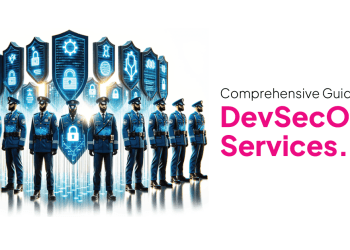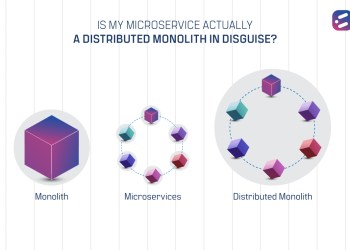
It was 2007, and Patrick Debois, an IT administrator, increasingly frustrated by conflicts between developers and system admins, pondered solutions on how to bridge the gap between them. A year later, he attended a conference by Andrew Shafer on “Agile Infrastructure”, the only man in attendance at the conference. The two later formed the Agile Systems Administration Group. In 2009, Debois coined the term “DevOps” from development and operations, a movement that has gained tremendous momentum over the decade and is today crucial for businesses aiming to stay competitive.
Bridging the gap between development and operations teams, DevOps helps fuel collaboration and automation, accelerating the software delivery pipeline, improving product quality, and increasing overall efficiency.
From a small movement to a multi-billion-dollar industry, the growth of DevOps has been tremendous. According to a State of DevOps report that was released by Puppet in 2023, 42% of the respondents in their survey said the speed of delivery had increased by “a great deal”.
No wonder Gartner says more than 85% of organizations will embrace the principle by 2025. The report from them also says:
- DevOps helps businesses reduce the time spent on handling support cases by 60%
- Organizations can invest 33% more time in infrastructure improvements with DevOps
But … and yes, there is a ‘but’ … all of these improvements depend on getting your DevOps practice right. That’s easier said than done, and partnering with the right DevOps Consulting service provider is the best way to set up a DevOps practice that delivers value from Day 1.
So, what do DevOps Consulting providers do?
1. Define DevOps goals and objectives
What do you as an organization aim to achieve through DevOps adoption? Are you looking to accelerate time-to-market, improve product quality, enhance team collaboration, or all of the above? By clearly defining your objectives, you can align DevOps efforts with organizational vision. And the right service provider can help you do this.
2. Assess current capabilities to build your team accordingly
A DevOps assessment looks at five aspects – human, functional composition, process and frameworks, intelligent automation, and technology ecosystems – to gauge your organization’s current capabilities as well as identify areas that require improvement and gaps that need to be addressed.
This is an important foundational step to setting up your DevOps practice, and your DevOps consultant will play a key role in helping you plan and build your DevOps team.
3. Select the right DevOps tools and technologies
There are several considerations to be taken into account when it comes to choosing the right tools for your DevOps practice. Some of these include addressing existing hurdles in manual testing and deployment, tool integration from different providers, planning for access control protocols, and modernizing obsolete development practices to suit the new tools.
Also, there is the question of budget. The tools must enable automation continuous integration and continuous deployment, while being cost-effective enough to install in all environments, including developer laptops.
Your DevOps partner will be able to guide you through the complexities involved to help you choose the right tools for your needs.
4. Establish key DevOps processes
Continuous integration, testing, deployment, and Infrastructure as Code (IaC) are some of the key DevOps processes that help standardize workflows and procedures to ensure consistency and repeatability. These need to be documented and made accessible to all team members.
5. Cultivate a DevOps culture
As Sashank Purighalla, CEO and founder of BOS Framework, says in an interview, “DevOps is a combination of culture, practices, processes and tools.” A DevOps culture is built on collaboration, transparency, accountability, and continuous improvement. It involves encouraging communication and collaboration between development, operations, and other cross-functional teams. It involves embracing a mindset of continuous learning and adaptation.
An experienced DevOps consulting partner will be able to help you navigate the common pitfalls of rolling out your new DevOps practice, and gain the buy-in of your team to ensure the process succeeds.
6. Effective monitoring and testing
DevOps monitoring entails observation and assessment of system and application performance. There are several types of monitoring such as process monitoring, compliance monitoring, and results monitoring all of which are incorporated in DevOps. Organizations use various tools for monitoring that range from Icinga and Jenkins to Datadog and Catchpoint. But which one is right for you? That’s where the right service provider can help.
7. Continuous learning and process iteration
DevOps is a journey of continuous learning and process iteration and encourages a culture of experimentation and feedback loops, where teams are encouraged to try new approaches and learn from their experiences.
With your DevOps consultant by your side, you are better equipped to monitor, iterate, and improve the process to maximize the value it generates.
Partnering with the right DevOps consulting firm can help you establish a successful DevOps practice. But you’ve got to choose a consulting partner with a proven track record of helping organisations achieve their DevOps goals so that you get access to expert guidance, best practices, and hands-on support tailored to your specific needs and challenges. Setting up an internal DevOps practice requires careful planning, execution, and continuous improvement. Give CloudNow a call today.













